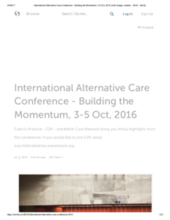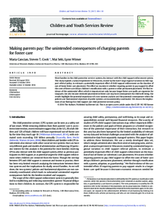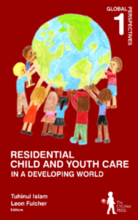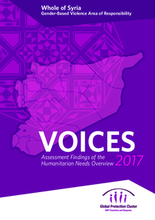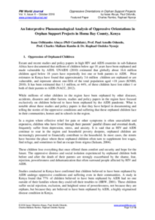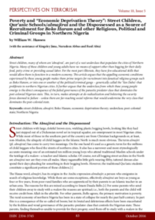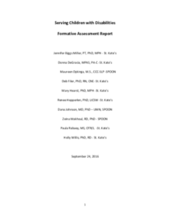Displaying 921 - 930 of 1343
This paper analyses how social support enhances family resilience in kinship foster families by involving the families in an educational group programme.
A summary of the International Alternative Care Conference 2016 via Storify.
Employing focus groups and participant-observation, this exploratory study examined areas of personal development, knowledge, and skills of young women who were formally in residential care in the Philippines to determine success factors for young women with traumatic histories.
A column from Journal of Adolescent and Adult Literacy reviewing two short films, which feature former foster care youths and their memories of the foster care system.
This study examines whether requiring parents to pay child support to offset the costs of foster care delays children's permanent placement, whether through reunification with a parent, adoption, or guardianship.
Edited by Tuhinul Islam and Leon Fulcher, Residential Child and Youth Care in a Developing World: Global Perspectives is the first volume of a series of four, bringing together contributions from local practitioners, educators and researchers across all regions on their countries' residential child and youth care traditions, policies and practices, as well as knowledge about children's needs, rights and personal upbringing there.
The report highlights the constant threat of sexual violence, exploitation, and child marriage that adolescents and girls face in Syria.
This paper is a literature review on the conditions of HIV/AIDS orphans in Kenya.
In this article, William W. Hansen argues that the street children who populate the cities of Northern Nigeria have no means of support other than begging for their daily food, petty crime or providing casual labor.
This document provides a formative assessment on the state of children with disabilities in Zambia.

